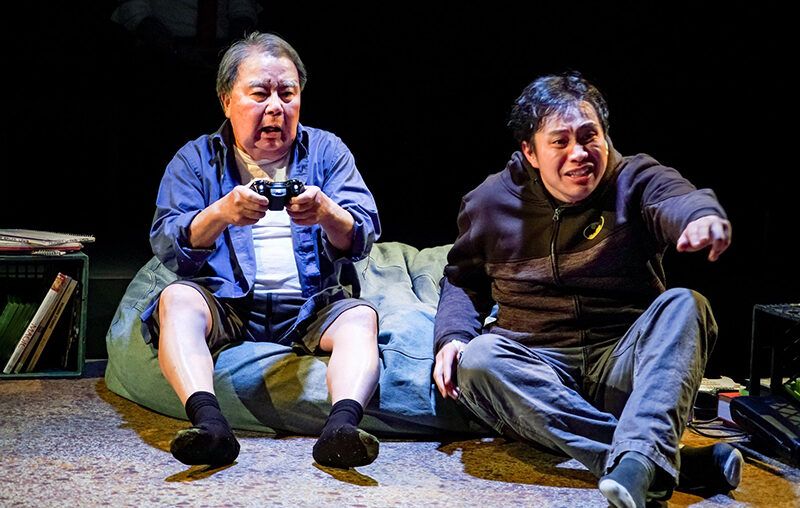American Hwangap: Another Type of Rebirth
New Guard members Anya S. and Neha G. sit down with director AJ Epstein & share their thoughts about West of Lenin's production.

Last week, we were lucky enough to go see American Hwangap by Lloyd Suh at West of Lenin. The play explores the relationships of an American-Korean family, the Chuns, particularly that of the family’s estranged father, Min Suk Chun, who returns home after fifteen years to celebrate his “Hwangap” (a commemoration of his 60th birthday). Before the show, we were also able to sit down with the play’s director, AJ Epstein, to ask a few questions.
With an artist for a mother, Epstein grew up surrounded by theatre. He went to shows regularly, and his parents were very supportive of him going into an arts-related field: “I was really lucky, that… I was able to have agency over [my decision to pursue an arts-related career]”, he stated. That wasn’t the only unique aspect of his arts-related journey, we found out, as Epstein had come up through lights and sound, and got into directing only later, in college. After purchasing West of Lenin, a tiny, eighty-eight seat, black box theater, in 2009, he started producing and directing shows there. Part of the theater’s charm is its small space, which provides the audience with a much more intimate experience.

Epstein had been dreaming about directing American Hwangap ever since he witnessed a table reading in the early 2000s. In his opinion, even with his directorial choices, “The play is very much Suh’s work”. Epstein simply intensified the meaning and sentiment behind the show’s words. During the short monologues scattered throughout the show, the speaker actually toasts Min Suk, and their reactions to the toast reflect their motivations and objectives. The characters also never leave the stage, but rather sit to the side, watching, which allowed the audience to see that they really are invested in the process of reconciliation, something their dialogue doesn’t convey. Epstein wanted us to know that “this [play] is a family story”, and even though the family members may not act like it, their main goal is to be a happy, cohesive group again.

According to Epstein, the three best words to describe American Hwangap are “family, growing, and love.” Although American Hwangap is about a Korean family, it has many universal values that make the play accessible to all. The importance and strength of family, in particular, is a theme repeatedly brought up throughout the show. With the rediscovery of their father, the children are able to come together and learn more about themselves. Another important theme is that of rebirth--after the father’s 60th birthday, he starts a new cycle in his life, and can make new choices and fix his mistakes. In that vein, Epstein said that, in the play, “there are lessons about… things you believe when you’re a kid… and, as an adult, how you are better able to see things from [an adult’s] perspective”. The play effectively showcases another type of rebirth, from a child to an adult. These values and ideas allow the play to resonate with adults, teens, and youth.
While we may have been the only teenagers in the audience when we went to see the show, American Hwangap could definitely be a play geared towards adolescents. The characters certainly act like kids, petulant and bratty, and, at times, you forget that they are thirty and instead see them as sixteen or seventeen. As Epstein so rightly said, “Doing theater, especially, is about imagining what’s possible”. With a little bit of imagination, teens can see themselves and their families in this play--maybe not as role models, but as an example of what they might become.
------------------
Anya S. and Neha G. are members of The New Guard: Teen Arts Leadership Society. Learn more about American Hwangap here!


